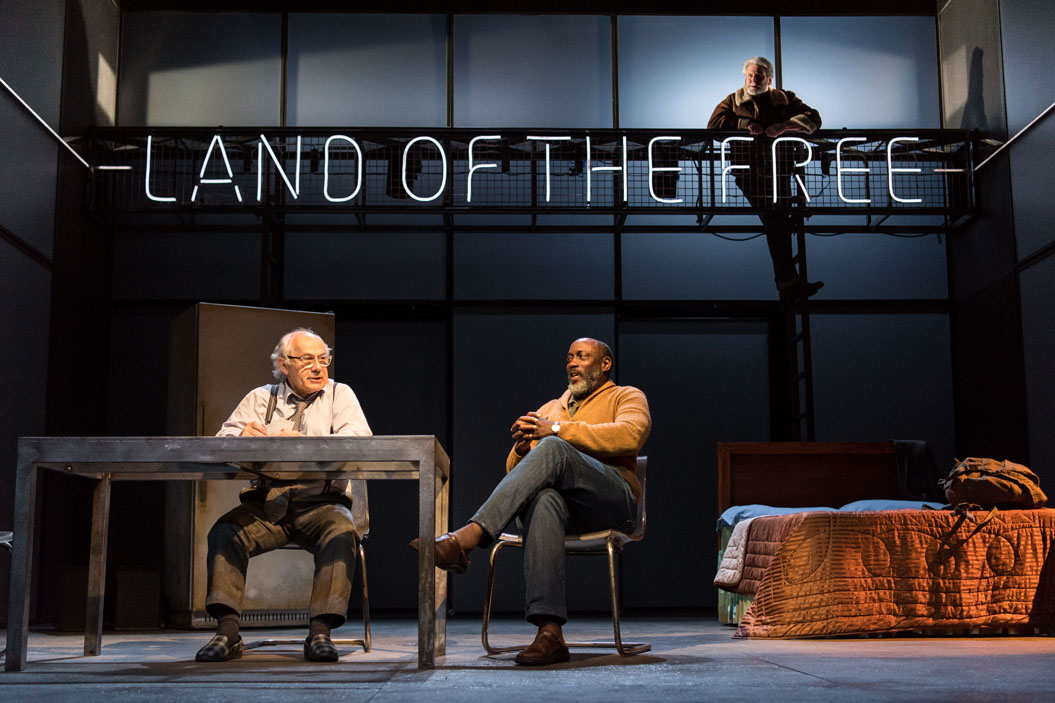
Last night we had a lesson in the value of an actor, that is, what an actor can bring to a script. Following the untimely death of Tim Pigott-Smith who was to play the lead role in Miller’s bitter bouquet to a lost way of life and filial love, Nicholas Woodeson has bravely stepped into the part with a mere two weeks to learn the lines. Unsurprisingly last night’s performance could only reach the heights of a well-rehearsed read-through with Mr Woodeson understandably some way from being ‘off book’. Nonetheless it was clear to anyone familiar with the play that this was a shrewd piece of emergency casting with hints that a great performance would ultimately emerge. We could see the outline of what he wanted to do with the part and by the same token what was going to be necessary to bring that to fruition. In short and coming back to my point, whilst we had all of Miller’s lines what was missing were the exchanges that give them life. It was precisely that area of drama where writer, director and actor come together in fomenting the chemistry that is flesh and blood people living in the moment, adding the layers of non-verbal meaning which we, the audience, as human beings, naturally decode and relish beyond the merely literary.
We could see the physical and emotional deterioration of a man enervated from infection with what Miller himself called the ‘success fever’ that had gripped the business world of America and had given substance to the not altogether fantastical notion of an achievable ‘American dream’. It is a lost way of life that Willy romanticizes in his elegiac speech to Howard. It is a way of life that had living icons in the names of the men who had risen from nothing to found corporations like Ford or stores like Maceys. It was an era in which the salesman was not bound to the advertisers’ line and forced to pitch his wares parrot-fashion, but was his own man and where to be liked was everything; as Willy puts it, ‘Be liked and you will never want’. Mr Woodeson showed us he understands this whilst not yet having fashioned it into a comfortably worn-in suit.
Happy’s bragging and immature womanising, his ‘sentimentality and narcissism‘ (Miller again) are well fashioned by Ben Deery. George Taylor as Biff, who needs Willy to bless his release from the conventional dream whilst feeling guilty at rejecting the father he loves, was, for the reasons we noted above, somewhat stymied by the presence of a script on stage, but showed us enough to convince that the character was safe in his hands. Similarly Tricia Kelly as Linda provided at the graveside scene an outpouring of love that otherwise struggled to develop in scenes where Willy was clutching his script.
I’ve no idea whether I was watching a potentially great production or not, but there was every indication that under Abigail Graham’s direction it would develop into something worthy of an audience’s hard earned cash. Graham Wyles 13th May 2017

